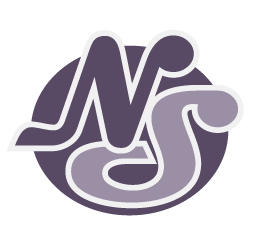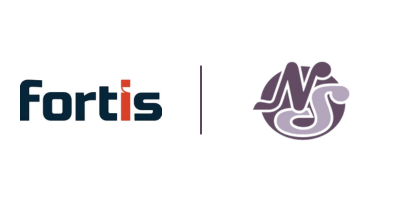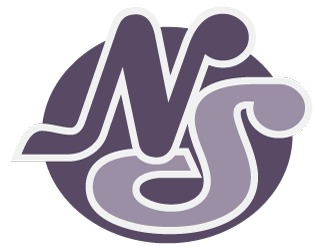Keys to a Successful Integrative Medical Practice
Integrating Clinical Excellence with Operational Efficiency for a Thriving Practice

Building and maintaining a successful integrative medical practice requires a unique blend of clinical excellence, patient-centered care, and effective practice management. Here are some key strategies to help ensure the success of your integrative medical practice:
1. Emphasize Patient-Centered Care
- Holistic Approach: Ensure that your practice treats patients as whole individuals rather than just focusing on symptoms. This holistic care approach is central to integrative medicine.
- Personalized Treatment Plans: Develop individualized treatment plans that incorporate a variety of therapies tailored to the patient’s specific needs and preferences.
- Patient Education: Educate your patients about the importance of lifestyle changes, nutrition, and self-care as part of their treatment plan. Empowered patients are more likely to adhere to recommendations and achieve better outcomes.
2. Build a Collaborative Team
- Interdisciplinary Collaboration: Foster a team environment where different health professionals, such as naturopathic doctors, acupuncturists, and nutritionists, work together. This collaboration enhances the quality of care and creates a more comprehensive treatment experience.
- Continuous Education: Encourage continuous professional development within your team to stay up-to-date with the latest research and techniques in integrative medicine.
3. Effective Practice Management
Effective practice management is crucial for the smooth operation of an integrative medical practice. It encompasses all the administrative, financial, and logistical aspects that keep the practice running efficiently and profitably. Here’s how to optimize practice management in your integrative medical practice:
- Integrated Practice Management Systems:
- Comprehensive Solutions: Implement a Practice Management (PM) system that integrates all aspects of your practice, including scheduling, billing, patient communications, and reporting. A comprehensive PM system can reduce administrative workload, minimize errors, and improve overall practice efficiency.
- Customization: Choose a PM system that allows for customization to fit the unique needs of your integrative practice. This might include features like customizable templates for different types of patient visits, integration with specific diagnostic tools, and support for a wide range of treatment modalities.
- Interoperability: Ensure that your PM system can integrate seamlessly with other systems you use, such as Electronic Medical Records (EMR), telehealth platforms, and billing systems. This interoperability enhances data flow and reduces the need for duplicate data entry, saving time and reducing errors.
- Electronic Medical Records (EMR):
- Tailored EMR Solutions: Invest in an EMR system designed specifically for integrative medicine. Such systems offer features like customizable charting templates for various treatments, robust reporting tools, and easy access to patient records, enhancing clinical efficiency and patient care.
- Online Intake Forms: Implement online intake forms that patients can fill out before their appointments. These forms can be automatically uploaded into the EMR, saving time on data entry and ensuring that practitioners have all the necessary information before seeing the patient.
- Patient Portals: Utilize patient portals to allow patients to access their health records, communicate with their practitioners, and schedule appointments online. This not only improves patient engagement but also reduces administrative workload.
- Scheduling and Appointment Management:
- Optimized Scheduling: Use advanced scheduling software to optimize appointment slots, reduce patient wait times, and minimize no-shows. Consider implementing features like automated reminders and online booking to improve convenience for patients and efficiency for staff.
- Telehealth Integration: Incorporate telehealth into your scheduling system to offer virtual appointments. This can be especially beneficial for follow-up visits, consultations, and patients with mobility or transportation challenges.
- Resource Allocation: Efficiently manage resources, such as treatment rooms and specialized equipment, to ensure that your practice can accommodate the needs of patients without overbooking or underutilizing resources.
- Billing and Revenue Cycle Management:
- Efficient Billing Practices: Ensure that your billing practices are streamlined and compliant with current regulations. Use software that automates the coding process, including the use of modifiers, to reduce errors and speed up the revenue cycle.
- Insurance Verification: Implement systems for verifying patient insurance eligibility and benefits before appointments. This reduces the likelihood of claim denials and ensures that patients are aware of their financial responsibilities upfront.
- Automated Collections: Utilize automated systems for managing collections, including sending out reminders for outstanding balances and offering payment plans. Effective collections management is key to maintaining healthy cash flow.
- Staff Training and Development:
- Ongoing Training: Provide ongoing training for your administrative and clinical staff on the use of PM systems, EMR, and other tools essential for efficient practice management. Regular training ensures that staff are proficient in using these systems and can maximize their potential.
- Cross-Training: Cross-train staff members to handle multiple roles within the practice. This not only enhances flexibility and coverage during absences but also ensures that operations run smoothly even if unexpected challenges arise.
- Customer Service Skills: Invest in training that enhances customer service skills for all staff members. Excellent customer service is a key component of patient satisfaction and retention.
- Data Management and Reporting:
- Real-Time Data Access: Implement systems that provide real-time access to key performance metrics, such as patient volume, billing efficiency, and financial performance. Real-time data allows for more responsive decision-making and better management of the practice.
- Custom Reports: Use your PM system to generate custom reports that provide insights into various aspects of your practice, from patient demographics to revenue trends. These reports can help you identify areas for improvement and guide strategic planning.
- Data Security and Compliance: Ensure that all patient data is stored securely and that your practice complies with all relevant data protection regulations, such as HIPAA. Implementing robust data security measures protects your practice from breaches and maintains patient trust.
- Patient Engagement and Communication:
- Automated Communications: Use automated systems to manage patient communications, including appointment reminders, follow-up emails, and health education resources. Automation saves time and ensures consistent communication with patients.
- Patient Feedback: Implement tools for collecting and analyzing patient feedback. Understanding patient experiences and satisfaction levels can help you make informed decisions about service improvements and patient care strategies.
- Health Education: Provide patients with educational resources, such as newsletters, blogs, or videos, that promote wellness and inform them about their treatment options. Engaged patients are more likely to be proactive in their health care and remain loyal to your practice.
- Inventory and Supply Chain Management:
- Inventory Tracking: Use inventory management software to track supplies, supplements, and other products essential to your practice. Automated inventory tracking can help you avoid stockouts and reduce waste.
- Supplier Relationships: Develop strong relationships with suppliers to ensure reliable access to the products and materials your practice needs. Negotiating favorable terms with suppliers can also lead to cost savings.
- Just-in-Time Inventory: Implement a just-in-time inventory system to reduce the amount of capital tied up in inventory while ensuring that you have the necessary supplies when needed.
4. Focus on Patient Experience
- Comfortable Environment: Create a welcoming and serene environment in your clinic. The physical space should reflect the healing and holistic nature of your practice.
- Effective Communication: Maintain clear and open communication with patients. Provide easy access to practitioners and ensure follow-up on treatments and patient concerns.
- Feedback Mechanisms: Regularly seek feedback from your patients to identify areas for improvement and adapt your services to better meet their needs.
5. Marketing and Community Engagement
- Build Your Brand: Develop a strong brand identity that reflects the values and strengths of your practice. Utilize social media, blogs, and newsletters to engage with your community.
- Community Involvement: Participate in local health fairs, workshops, and other community events to increase visibility and credibility.
- Patient Referrals: Encourage satisfied patients to refer others to your practice. A strong referral program can be a significant driver of growth.
6. Financial Health
A successful integrative medical practice requires a solid financial foundation to support growth, innovation, and the ability to deliver high-quality care. Financial health is not just about maintaining profitability but also about creating a sustainable business model that can adapt to changes in the healthcare landscape. Here’s how to ensure robust financial health for your practice:
- Budgeting and Financial Planning:
- Comprehensive Budgeting: Develop a detailed budget that includes all aspects of your practice, from staff salaries and overhead costs to marketing and technology investments. Regularly review your budget to ensure that your spending aligns with your financial goals.
- Cash Flow Management: Monitor your cash flow carefully to avoid liquidity issues. Ensure that your practice has enough cash reserves to cover unexpected expenses and periods of low revenue.
- Financial Forecasting: Use financial forecasting to predict future revenue and expenses. This will help you make informed decisions about investments, hiring, and other significant expenditures.
- Revenue Streams:
- Diversification: Don’t rely solely on patient consultations for revenue. Consider offering additional services such as wellness programs, workshops, online consultations, and product sales (e.g., supplements, health products). Diversifying your revenue streams can create more stability and reduce financial risk.
- Membership Models: Implement a membership or subscription model that provides patients with ongoing access to certain services or discounts. This can create a steady income stream and increase patient loyalty.
- Telehealth Services: Expand your practice by offering telehealth services. This not only provides convenience for patients but also allows you to reach a broader audience, potentially increasing your revenue.
- Cost Control:
- Operational Efficiency: Regularly review your operational processes to identify areas where you can reduce costs without compromising on patient care. For example, transitioning to a paperless practice can save on supplies and storage costs.
- Supplier Negotiations: Negotiate with suppliers to get the best prices for the products and services you need. Consider joining a group purchasing organization to benefit from bulk purchasing discounts.
- Staffing Optimization: Ensure that your staffing levels are appropriate for your practice’s needs. Overstaffing can lead to unnecessary expenses, while understaffing can harm patient care and satisfaction.
- Billing and Collections:
- Optimized Billing Practices: Ensure that your billing practices are efficient and that claims are submitted accurately and promptly. Proper coding, including the use of modifiers, is crucial for maximizing reimbursements and minimizing claim denials.
- Collections Strategy: Develop a clear collections strategy to manage unpaid bills. This might include setting up payment plans, offering early payment discounts, or partnering with a collections agency if necessary.
- Patient Payment Options: Offer flexible payment options, such as payment plans or credit card payments, to make it easier for patients to pay their bills. This can reduce the risk of unpaid invoices and improve cash flow.
- Financial Reporting:
- Regular Financial Reviews: Conduct regular financial reviews to assess your practice’s financial performance. This should include analyzing profit and loss statements, balance sheets, and cash flow statements.
- Key Performance Indicators (KPIs): Track key financial metrics such as revenue per patient, average billing per visit, and accounts receivable turnover. These KPIs can help you identify trends and make data-driven decisions.
- External Audits: Consider periodic external audits to ensure the accuracy of your financial reporting and to identify any potential areas of concern.
- Investing in Growth:
- Technology Upgrades: Invest in technology that can enhance the efficiency of your practice, such as an advanced EMR system, telehealth platforms, or patient engagement tools. These investments can lead to long-term cost savings and improved patient care.
- Facility Expansion: If your practice is growing, consider expanding your facility to accommodate more patients or add new services. Ensure that any expansion is financially justified and supported by your financial forecasts.
- Staff Training and Development: Invest in your team by providing ongoing training and professional development opportunities. A well-trained staff can improve patient outcomes and contribute to the overall success of your practice.
Conclusion
Effective practice management is the backbone of a successful integrative medical practice. By implementing robust systems for scheduling, billing, data management, and patient communication, you can streamline operations, enhance patient care, and create a sustainable business model. When combined with a focus on financial health, marketing, and patient-centered care, these strategies will help your practice thrive in the competitive healthcare environment.












